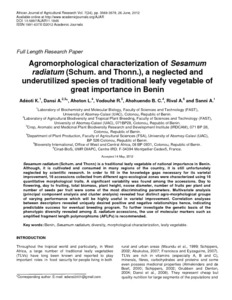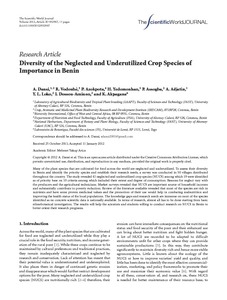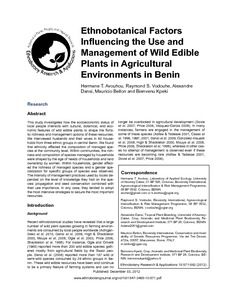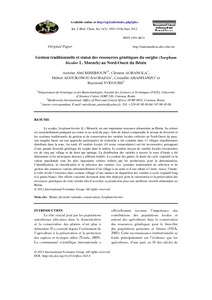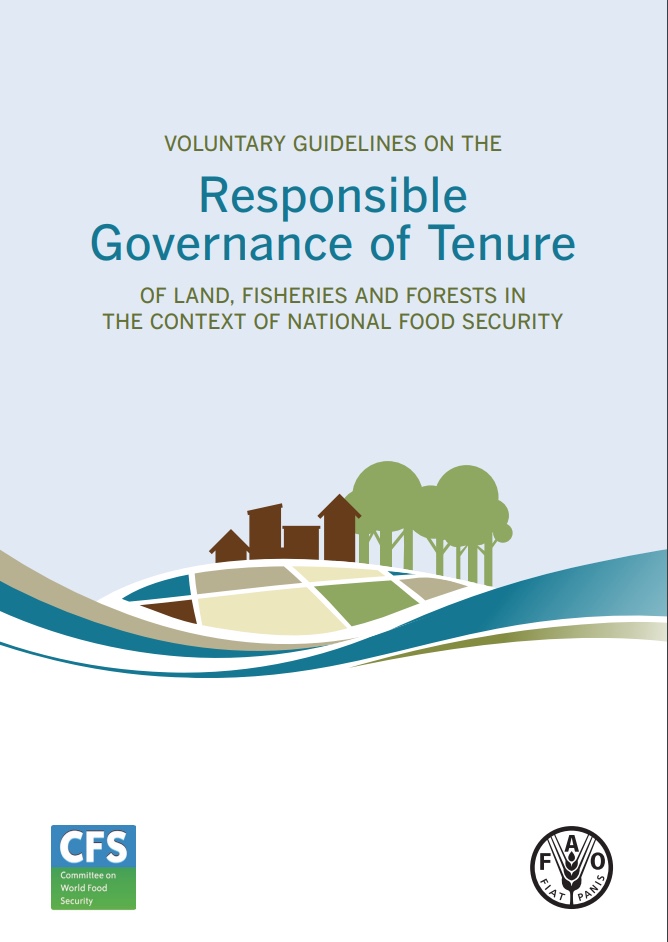Benin covers a land area of 114,763 square kilometers and occupies a long stretch of land perpendicular to the coast of the Gulf of Guinea in West Africa. It is bordered on the north by Burkina Faso and the Republic of Niger, on the east by the Federal Republic of Nigeria, and on the west by the…
Migration and population growth lead in coastal zones, especially in developing countries like Benin in Western Africa, to extreme land use pressure, causing ecological as well as land cover and land use changes, socio-economic modifications, and conflicts of interest and generational conflicts…
The Adja plateau (Benin) is densely populated by tenant and landowner farmers engaged in oil palm based cropping. Landowners use oil palm sap for the production of sodabi (a local spirit), and an oil palm fallow (if no crops are grown beneath the palms) to restore soil fertility. In this area,…
This issue of Nature & Faune aims at highlighting the complexity of the interface between forest and agriculture in Africa. It strives to unfold the realities of managing the physical and economic zones where forests meet farms in Africa.
The VGGT represent the first inter-governmental consensus on the principles and accepted standards for the responsible governance of tenure for governments, international organisations, communities, and the private sector. Their aim is to promote secure tenure rights and equitable access to land…
Meeting Name: FAO Regional Conference for Europe (ERC)
Meeting symbol/code: ERC/12/INF/15
Session: Sess. 28
he guidelines are the first comprehensive, global instrument on tenure and its administration to be prepared through intergovernmental negotiations.
The guidelines set out principles and internationally accepted standards of responsible practices for the use and control of land,…




